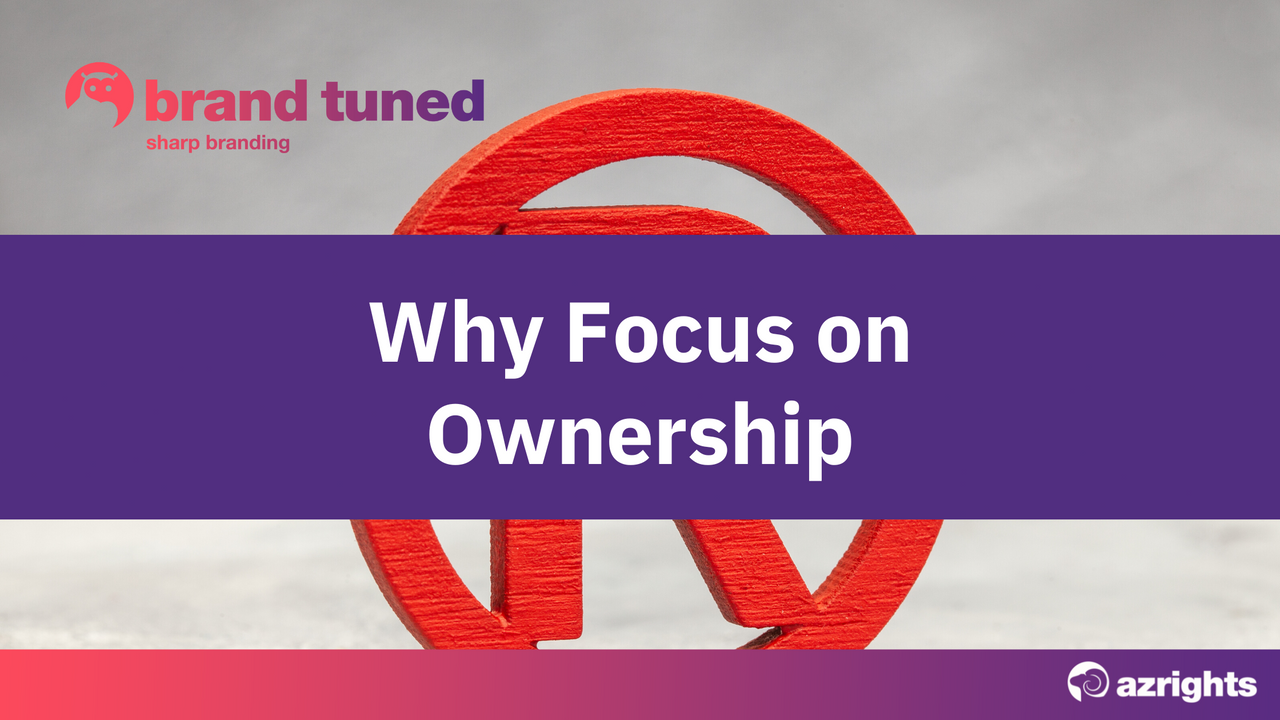Why Focus on Ownership
Oct 06, 2022
Ownership is important in the digital world we live in, because the value of most businesses lies in their intangible assets.
However, it’s all too easy to overlook ownership. Perhaps that’s because people believe that their “IP” automatically belongs to them. Or maybe they think IP is something IP lawyers will advise on once the business takes off.
Ownership is about retaining control rather than giving away the value of our knowledge and skills, so it needs to be considered early on in the life of a business.
Our ideas, knowledge and skills are only our “IP” while they are just ideas. Once we put them out in the world by writing content, or inventing something, or having a piece of software created for us, or the like, IP laws determine who owns the resulting asset.
The IP default rules that decide questions of ownership are often surprising to people. IP laws govern intangibles so it’s important to learn about them.
Just as the training of journalists requires them to develop a solid understanding of media law to do their job effectively, so a good grasp of intellectual property is essential for designers and marketers who create or manage brands. The very choices made during branding are intellectual property decisions after all.
Take names as an example. To own a name involves a two-step process. First, it’s necessary to check that the proposed name is ownable and available.
Ownability is a large subject that is not as well understood as it should be. That’s why training is needed to discover how names or symbols or shapes or characters or sounds or colours or taglines and slogans can be owned.
Availability is about the name not belonging to someone else. Although legal advice will be needed, it’s useful to develop the skills to do preliminary checks oneself too. The name you choose must not be like that of existing businesses in your category. That’s because the law only allows businesses to share names if they operate in different spheres. For example, the name Polo belongs to 3 unrelated businesses. They can use the same name because they are in entirely different areas of business: clothing (Ralph Lauren), confectionery (Nestle), and automotive (Volkswagen).
The second step in the process to securing ownership rights in a name is to register a trademark.
Given that the name is what enables others to recognise a business, and that everything we do in business is designed to raise awareness of our name, it’s crucial to own our name. This is the case even though there is no legal requirement to register a trademark in jurisdictions like the UK and USA.
Registration is the way to ensure you don’t lose the right to use your name. It’s the best way to prevent competitors using a similar name to divert business away. Yet, many businesses expose themselves to risk because they don’t secure ownership rights in their name. It’s not at all unusual to find that a business hasn’t registered its name as a trademark.
If you work with businesses, learn how IP impacts them so you can better support and guide them. Knowing what steps to take to secure ownership before implementing ideas is key to success in business. That means caring about ownership rights in intangibles like names, copyright content, inventions, websites, data and more.
I was surprised to discover that marketers and designers are not trained in IP. Given that they create IP during branding, IP is intrinsic to the exercise.
I strongly believe that the status quo needs to change. Designers and marketers should train in IP. The Brand Tuned Accreditation program aims to provide accessible training, and a powerful way for designers and marketers to differentiate themselves from their untrained counterparts.
The first cohort is currently going through the program. They’ve made positive comments about the course so far. We’ll be getting their detailed feedback at the end of the program so the next cohort can benefit even more.
With that end in mind, I’d love to know your top questions about branding and Intellectual Property (IP) - including how to sell these kinds of services to a designer, marketer, lawyer or consultant. I want to be sure we cover everything.
What are your biggest questions around this topic? I’d appreciate it if you would let me know at this link https://bit.ly/BrandTunedQuestions. As a ‘thank you’ I’ll send a free video answering the top questions I’ve had.
We’re considering developing a program on Identity and Distinctiveness for those who want an in depth understanding of names and identifiers so they can create distinctive names, taglines, symbols, jingles, and colours while addressing ownership in their brand strategy.
If you’re a designer, marketer, business consultant or lawyer receiving the Brand Tuned newsletter or are a LinkedIn Brand Tuned subscriber, I may approach you directly to find out what IP training you have had, and what training you would find useful. Do let me know if you want to be involved.

